About the Institute
The 2023 NEH Summer Institute, The Immigrant Communities of Florida and José Martí in Cuban Independence and the Dawn of the American Century, seeks to heighten awareness of how immigrant communities have helped usher in political transformations both at home and abroad and to accentuate the rich and complex cultural world established by the Cuban, Sicilian and Spanish immigrants around the cigar industry in turn-of-the-century Florida. An important and often overlooked aspect of that community was its political activism both domestically, in the struggle for labor and immigrant rights, and internationally, as a crucial component of the organization and funding of the Partido Revolucionario Cubano, or Cuban Revolutionary Party, which under the leadership of José Martí would serve as the vehicle for Cuban independence. While Ellis Island rightfully endures as a symbol of the transformative effect of immigration in America, the story of Key West, Tampa and Ybor City provides an extraordinary case study not only of one particular immigrant community but of a whole range of issues that intersect at this place in time: issues regarding national identity, labor rights, racial and gender equality, political action, revolutionary ideology, postcolonial struggle and U.S. foreign policy and military intervention in Latin America and beyond. The study of this remarkable convergence will provide participants with an ample, interdisciplinary array of topics to explore and incorporate into their work as teachers and scholars.
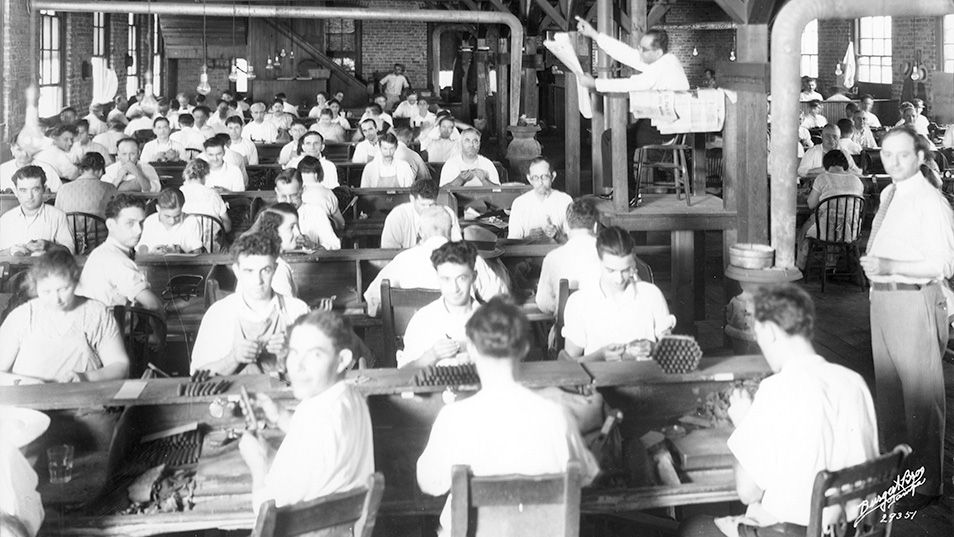 This institute aims to accentuate the rich and complex cultural world established by the Cuban, Sicilian and Spanish immigrants around the cigar industry in turn-of-the-century Florida. Photo courtesy of the Tampa-Hillsborough County Public Library System
This institute aims to accentuate the rich and complex cultural world established by the Cuban, Sicilian and Spanish immigrants around the cigar industry in turn-of-the-century Florida. Photo courtesy of the Tampa-Hillsborough County Public Library System
A key figure in this historical convergence is José Martí, the extraordinarily prolific writer and activist who would become the intellectual leader of Cuban independence, and whose formulation of Cuban national identity – Patria– remains to this day the foundational patriotic discourse of Cubans of all political tendencies both on the island and in the diaspora. Yet Martí himself lived most of his life as a political exile in the U.S. and is increasingly recognized not just as a Cuban patriotic hero, but also as an indispensable chronicler of the U.S. during the Gilded Age, whose unique insights into the politics and culture of that era reveal fascinating and often overlooked aspects of U.S. history at the dawn of what has come to be known as the American Century.
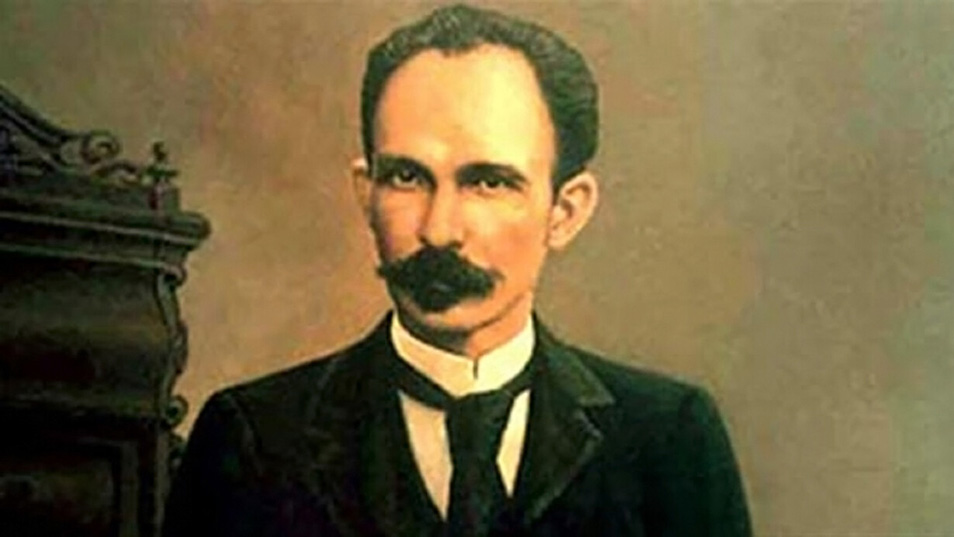 A key figure in this historical convergence is José Martí, the extraordinarily prolific writer and activist who would become the intellectual leader of Cuban independence.
A key figure in this historical convergence is José Martí, the extraordinarily prolific writer and activist who would become the intellectual leader of Cuban independence.
The immigrant communities of Tampa and Key West were fundamental to the evolution of Martí’s political thought concerning both the U.S. and the envisioned future Cuban republic. Martí famously declared after his first visit to the region in November 1891 that “En Tampa todo estaba hecho” [‘In Tampa the work had already been done’], meaning that these cigar manufacturing communities had already laid the groundwork for the coming revolution. Ever since the outbreak of the first war for Cuban independence in 1868, Key West and later Tampa had become the adopted home for thousands of working-class Cubans fleeing war and economic hardship. The cigar manufacturing boom that ensued was a direct consequence of this migration, and provided the circumstances and the means for a radical reformulation of national identity and political self-determination. Martí deeply admired the way these workers had built thriving communities, and from their own collective needs had established and constructed mutual-aid societies that provided education, health care, retirement benefits and burial services to their members. These first-generation immigrants, Black and white, most of whom could not read or write, nonetheless maintained theaters, financed symphony orchestras, supported newspapers in Spanish, Italian and English, and otherwise brought civilization to a forgotten corner of the deep Jim Crow South. The physical spaces (cigar factories, mutual aid societies, preserved homes), the artifacts (newspapers, photographs, letters), and the proud descendants of those immigrants remain alive and well in the streets of Ybor City and West Tampa, and NEH scholars will have many opportunities to interact with them during this institute.
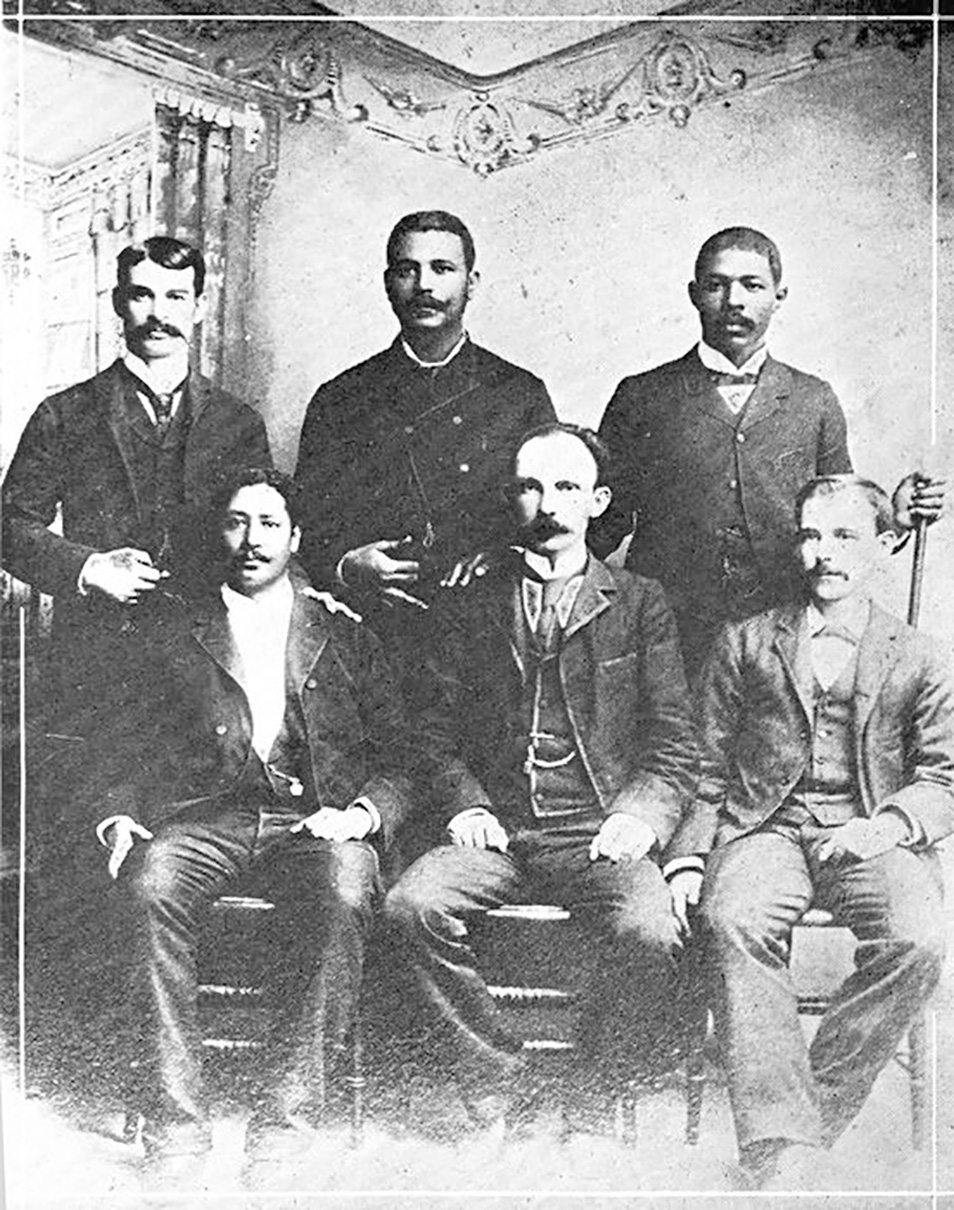
The immigrant communities of Tampa and Key West were fundamental to the evolution of Martí’s political thought concerning both the U.S. and the envisioned future Cuban republic.
A full understanding of this history must take into account the experiences and influence of these immigrant communities, which occupied a unique space between the U.S., their adopted home, and Cuba, the home they were forced to abandon but to whose liberty and sovereignty they remained intensely devoted. For this reason, a key component of the Institute will be to critically reevaluate these communities, to identify and debate their internal conflicts and contradictions, to look beyond the hagiography of Martí and reassess his key writings in light of the political and social realities they sought to address, and to enter into a constructive and enlightening dialogue with the many intersecting notions of identity that arose and were debated in these communities during this seminal period: notions of national identity, ethnic identity, racial identity, gender identity and class identity.
Institute Expectations
The story of the immigrant communities of Florida, José Martí and the Spanish-American War provides a rich interdisciplinary portrait of the U.S. at a crucial moment in its history.
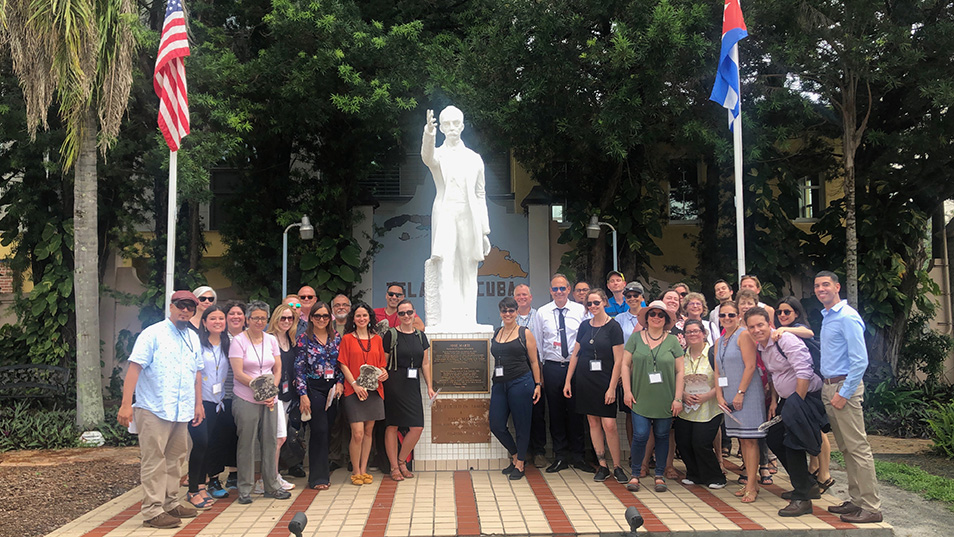 In addition to the expertise brought by our visiting faculty, the Institute will engage more directly and intimately with the legacy of these immigrant communities through direct contact with their material culture via site visits and guided tours to cigar factories, mutual aid societies, preserved homes and historic neighborhoods.
In addition to the expertise brought by our visiting faculty, the Institute will engage more directly and intimately with the legacy of these immigrant communities through direct contact with their material culture via site visits and guided tours to cigar factories, mutual aid societies, preserved homes and historic neighborhoods.
Because the goal of the institute is to enhance and expand the teaching of this important aspect of U.S. history and culture, its key elements – expert lectures, guided readings, archival materials, visits to significant historical sites – are all directed toward the development of 1) innovative research projects or 2) course modules and/or syllabi to enrich the college curriculum and disseminate this history. Therefore, all of the Summer Scholars selected to participate in the institute will be expected to draft 1) a research project or 2) a detailed course module or syllabus that reflects the institute content and themes. Modules and syllabi should include draft bibliographies or assigned readings, as well as information about resources that will be used in teaching and/or research.
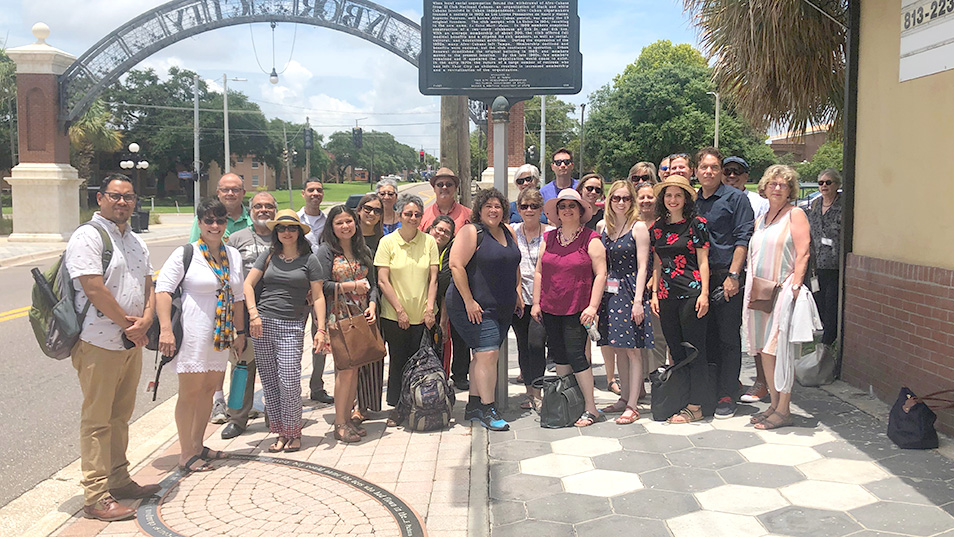 This is the second time this institute will be hosted. The first was in 2019.
This is the second time this institute will be hosted. The first was in 2019.
In addition to the expertise brought by our visiting faculty, the Institute will engage more directly and intimately with the legacy of these immigrant communities through 1) close study of their cultural production via newspapers, memoirs, and local theater, 2) direct contact with their material culture via site visits and guided tours to cigar factories, mutual aid societies, preserved homes and historic neighborhoods, and 3) access to important local archives such as the Ybor City and West Tampa Collections and Cuban Wars of Liberation/Spanish-American War Collections at the University of South Florida Special Collections, the Tampa Bay History Center Archives and the Ybor City State Museum. The combination of faculty lecture, group discussion, archival research and hands-on engagement with the places and people that conserve this history will add a rich dimension to the cross-cultural and interdisciplinary study of this period.
Throughout the program, the institute directors and guest faculty will be available to meet with participants individually and in small groups to assist in formulating and developing these projects. When feasible, all faculty will be asked to share their pedagogical approaches to the teaching of this material and to be prepared to answer questions regarding this matter. Furthermore, there will be weekly group conversations dedicated to content delivery organized by discipline and topics of interest, and participants will have full access to The University of Tampa resources and facilities, as well as access to the University of South Florida Library Special Collections and the archives of the Tampa Bay History Center, for the study and development of their materials and presentation. Finally, three days will be dedicated to research and workshops, culminating in final presentations of course modules and research projects by the participants.
Links to completed projects will be placed on the Institute website and made available to former and future institute participants, as well as other educators who are interested in incorporating this history into their college and university courses.
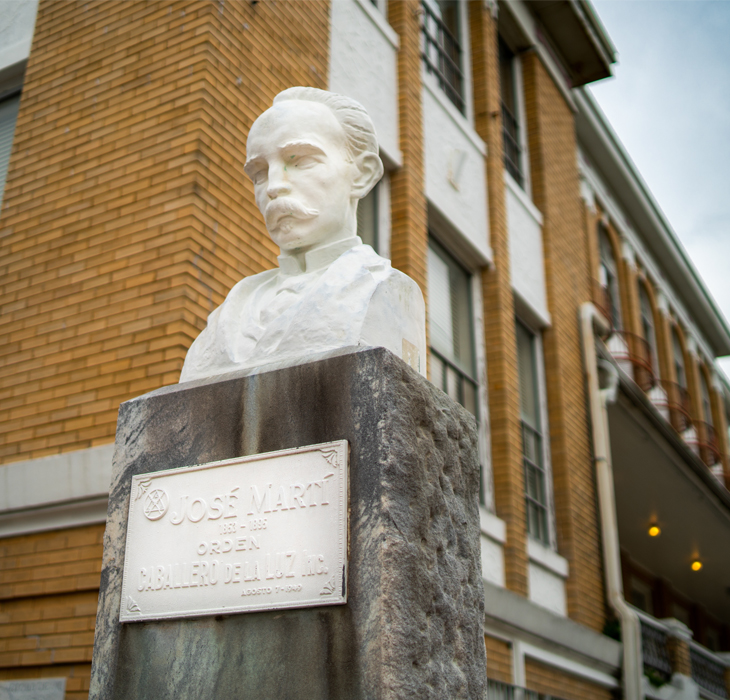
Participants will have access to important local archives such as the Ybor City and West Tampa Collections and Cuban Wars of Liberation/Spanish-American War Collections at the University of South Florida Special Collections, the Tampa Bay History Center Archives and the Ybor City State Museum.
In addition to instructors of U.S. history, Latin American and Caribbean/Cuban studies, race and ethnicity studies and international relations, this institute will also be of special value to instructors of Hispanic language and literature. Since many of the readings for the Institute were originally published in Spanish, and José Martí and the cigar workers of Ybor City are frequent topics of study in language and culture courses at the university level, participants interested in preparing research projects and/or course modules in Spanish will have the full support of the co-directors and visiting faculty, all of whom are fluent in Spanish, and many of whom have experience teaching in foreign language programs.
